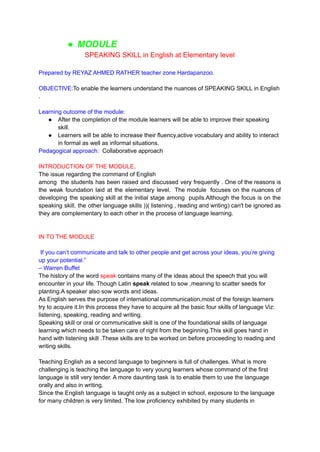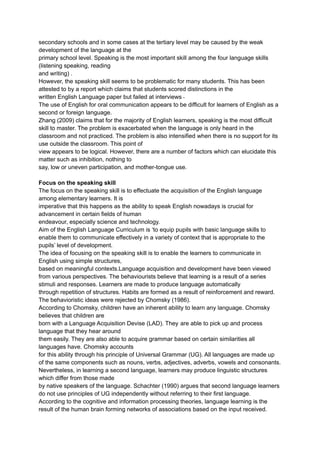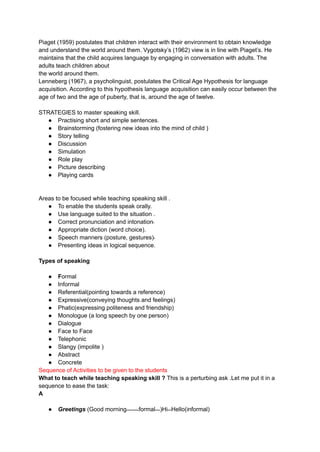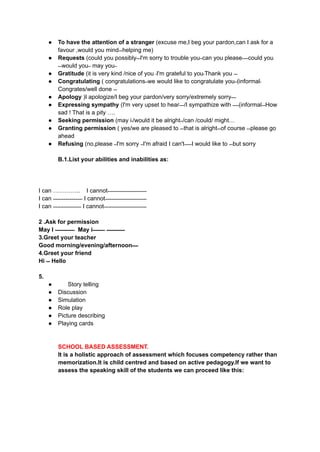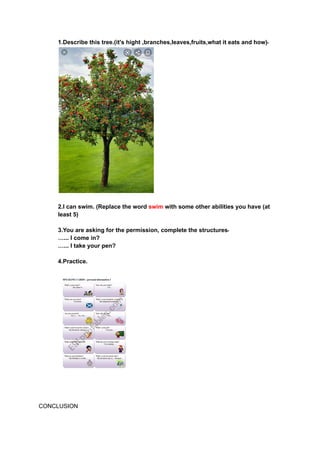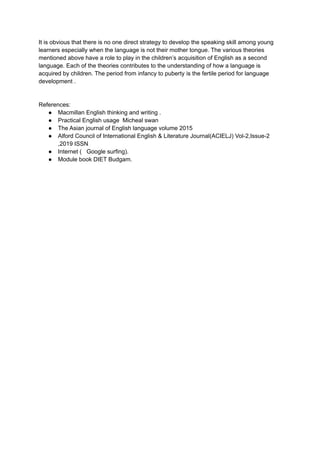The document outlines a module designed to enhance speaking skills in English for elementary learners, focusing on fluency, vocabulary, and interaction in various contexts. It emphasizes the foundational importance of speaking alongside other language skills, and addresses challenges such as limited exposure and the difficulty of using English outside the classroom. Various pedagogical strategies, including role play and discussion, are suggested to aid in the acquisition of oral communication skills, with references to theories of language learning and development.
